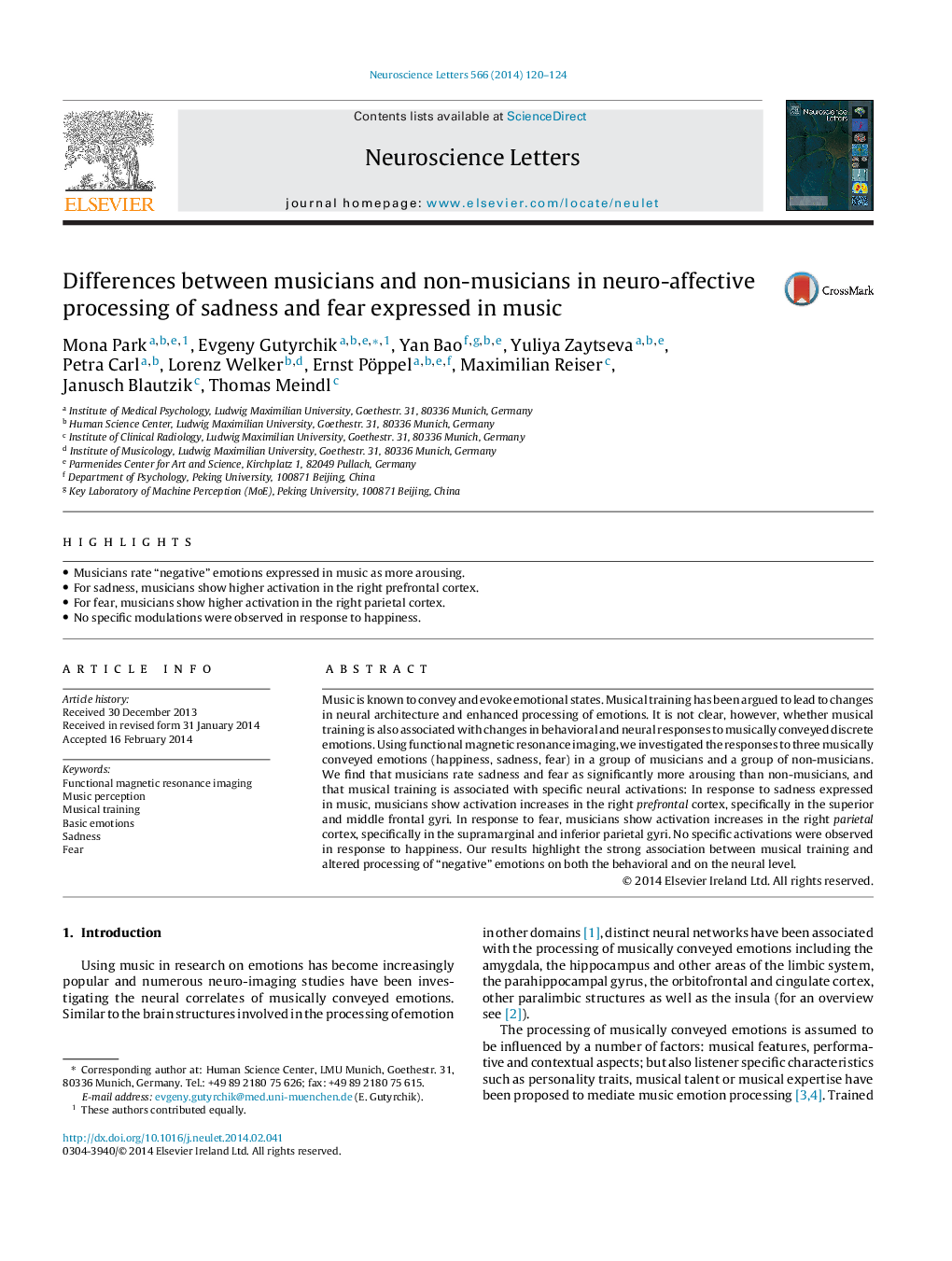| Article ID | Journal | Published Year | Pages | File Type |
|---|---|---|---|---|
| 6282121 | Neuroscience Letters | 2014 | 5 Pages |
Abstract
Music is known to convey and evoke emotional states. Musical training has been argued to lead to changes in neural architecture and enhanced processing of emotions. It is not clear, however, whether musical training is also associated with changes in behavioral and neural responses to musically conveyed discrete emotions. Using functional magnetic resonance imaging, we investigated the responses to three musically conveyed emotions (happiness, sadness, fear) in a group of musicians and a group of non-musicians. We find that musicians rate sadness and fear as significantly more arousing than non-musicians, and that musical training is associated with specific neural activations: In response to sadness expressed in music, musicians show activation increases in the right prefrontal cortex, specifically in the superior and middle frontal gyri. In response to fear, musicians show activation increases in the right parietal cortex, specifically in the supramarginal and inferior parietal gyri. No specific activations were observed in response to happiness. Our results highlight the strong association between musical training and altered processing of “negative” emotions on both the behavioral and on the neural level.
Keywords
Related Topics
Life Sciences
Neuroscience
Neuroscience (General)
Authors
Mona Park, Evgeny Gutyrchik, Yan Bao, Yuliya Zaytseva, Petra Carl, Lorenz Welker, Ernst Pöppel, Maximilian Reiser, Janusch Blautzik, Thomas Meindl,
